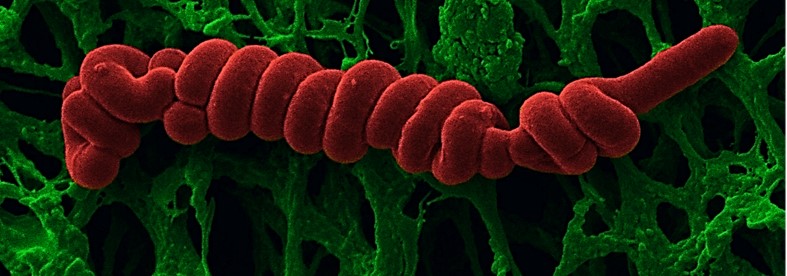In This Section
- Home
- Study Microbiology at UCC
- Postgraduate Research Programmes
- About
- Research
- People
- Academic Staff
- David Clarke, Head of School
- Hilary Browne
- Marcus Claesson
- Sinéad Corr
- Alan Dobson
- Gerald F. Fitzgerald
- Cormac Gahan
- Colin Hill
- John MacSharry
- Jennifer Mahony
- Ruth Massey
- John P. Morrissey
- Fergal O'Gara
- Niall O'Leary
- Liam O'Mahony
- Paul O'Toole
- Michael B. Prentice
- Gaurav Rajauria
- F. Jerry Reen
- Paul Ross
- Francisco Vitor Santos da Silva
- Martina Scallan
- Pauline Scanlan
- Andrey Shkoporov
- Douwe van Sinderen
- Jens Walter
- Technical Staff
- Administrative Staff
- Academic Staff
- Staff Resources
- Postgrad and Post Doc Committees
- School Seminars
- News/Newsletters
- Athena SWAN
- Current Vacancies
- Contact Us

Academic Staff Research Interests and Expertise
- Ecology and evolution of intestinal spore-forming bacteria
- Genomic functional characterisation of gut microbes
- Gut microbiome phylogenomics
- Bioinformatics
- Metagenomics and metatranscriptomics
- Culture-independent approaches to understanding Inflammatory Bowel Disease
- Bacteria-host interactions
- Biofilm formation
- Signaling in bacteria
- Molecular mechanisms underpinning interactions between the gut microbiome, the gut mucosal barrier and immunity
- The Gut Microbiome and its metabolites in health and inflammation
- Dietary and environmental sources of new immune-modulators, anti-microbials and therapeutics
- Applied Microbiology
- Environmental Biotechnology
- Marine Biotechnology
- Physiology and genetics of bacteria and fungi from marine and terrestrial Environments
- Functional Metagenomics
- Food Mycology/Genetics of Mycotoxigenic fungi
- Eukaryotic microbes/Cell Biology
- Biochemistry, physiology and genetics of Lactic Acid Bacteria
- Probiotic cultures - fundamental analysis and applications in foods
- Genomics of Bifidobacterium
- Bacteriophage resistance in Lactococcus: fundamental analysis of resistance systems and their application in the construction of phage resistant cultures
- Molecular genetics of bacteriophage of Lactococcus
- Antimicrobials of Lactic Acid Bacteria as biopreservatives of foods
- Development of live bacterial vaccine and DNA delivery vectors
- Understanding microbial pathogenesis (Listeria monocytogenes & Clostridium difficile)
- Culture-independent approaches to understanding the gut microbiota
- Microbe-host signaling and bile degradation in the human GI tract
- Infectious pathogens
- The gut microbiome
- Bacteriocins (applied and fundamental aspects)
- Bacteriophage (applied and fundamental aspects)
- Probiotics as anti-infectives
- Host-microbe interactions
- Mucosal immune sampling and response in the gut and the lungs
- Bacteriophage-host interactions in lactic acid bacteria and other food-associated bacteria
- Bacteriophage-resistance systems
- Functional genomics of lactic acid bacteria
- Industrial microbiology
- Microbial pathogenicity
- Staphylococcus aureus toxin production and immune evasion
- Streptococcus pneumoniae virulence
- Functional genomics and GWAS
- Clinical metagenomics
- Molecular diagnostics development
- Yeast Biotechnology
- Microbial signalling
- Microbe-host interactions
- Fungal pathogenesis
- Environmental and Marine Biotechnology
- Microbial Genetics and Genomics
- Microbe-host Interactions Applied to Environment and Health Sectors
- Microbial Pathogenesis
- Molecular Biology of Plant-Microbe Interactions
- Molecular Microbial Ecology of Microbes
- Environmental Biotechnology
- Microbial Bioconversions for Resource Sustainability
- Waste/Wastewater bioremediation
- Global regulation of microbial pathways for pollutant catabolism
- Mechanisms of Immune Tolerance
- Allergy and Asthma
- Innate Immune Recognition of Bacterial Structures
- Genomics of host interaction mechanisms in gastrointestinal bacteria
- Composition and function of the human gut microbiota
- Bacterial genomics, especially Yersinia sp
- Bacterial Microcompartments
- Horizontal gene transfer in bacteria (phage mediated)
- Industrial Biotechnology, Microbial Fermentation
- Valorisation of Marine Biomass, Agriculture / Food / Urban Waste and Side Streams
- Resource Efficiency, Zero Waste Cascading Biorefinery Development
- Advanced Food Processing / Extraction Technologies, Pretreatment Technologies
- Bioprocessing, Bioactive Mining
- Alternative Proteins and Biochemicals for Biobased Economy
- Isolation, Purification and Characterisation
- Small molecule signalling in microbial communities
- Chemico-biological therapeutics
- (Post)Transcriptional regulatory systems
- Food Biotechnology
- Gut microbiota
- Novel antimicrobials, including bacteriocins and bacteriophage
- Probiotics and starter cultures
Francisco Vitor Santos da Silva
- Industrial bioprocesses, mathematical modelling, and data science
- Chemical and biochemical process development and scale-up
- Hybrid modelling techniques
- New and sustainable processes in the areas of food, chemical, and pharmaceutical production
- Virus-host cell interactions: intracellular molecular communication between virus and cell components determining infection outcome.
- Viruses as vectors for therapeutic gene delivery.
- Gastrointestinal viruses and gut epithelial cells and the influence of probiotic bacteria on virus-epithelial cell interactions.
- Neurotropic viruses and cells of the central nervous system
- Ecology and evolution of the gut microbiome
- Prevalence, diversity and function of gut microbial eukarya (Fungi and Protists e.g. Blastocystis)
- Bacteriophages
- Host-parasite coevolution
- Chronic Disease
- Bacteriophages in the human microbiome (the phageome)
- Phage-host interactions, phage life cycles
- Gut microbiome in the Inflammatory Bowel Disease
- Anaerobic bacteriology
- Taxonomy and nomenclature of gut bacteria and bacteriophages
- Global gene regulation in bacteria through environmental sensing systems
- Molecular biology of bacteriophage infecting lactic acid bacteria
- Genomics and systems biology of lactic acid bacteria and bifidobacteria
- Metabolic engineering of lactic acid bacteria
- Probiotic functionality of bifidobacteria
- Evolutionary ecology of gut microbes
- Community ecology of host-associated microbiomes
- Human nutrition and the gut microbiome
- Translation of basic microbiome science into therapeutic and nutritional strategies
School of Microbiology
Scoil na Micribhitheolaíochta
Contact us
Microbiology Office, Room FSB452, 4th Floor Food Science & Technology Building, University College Cork, Cork T12 Y337
